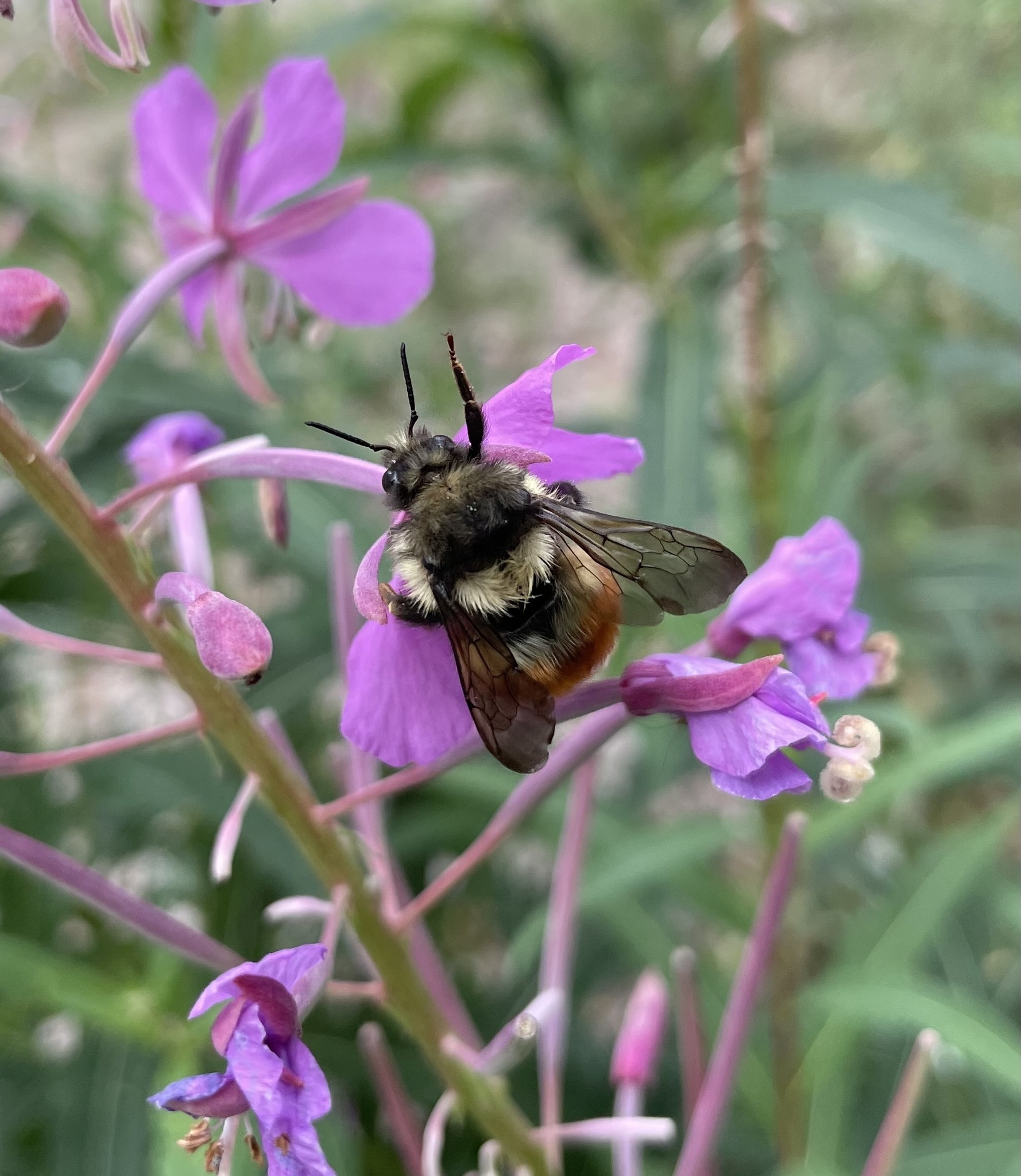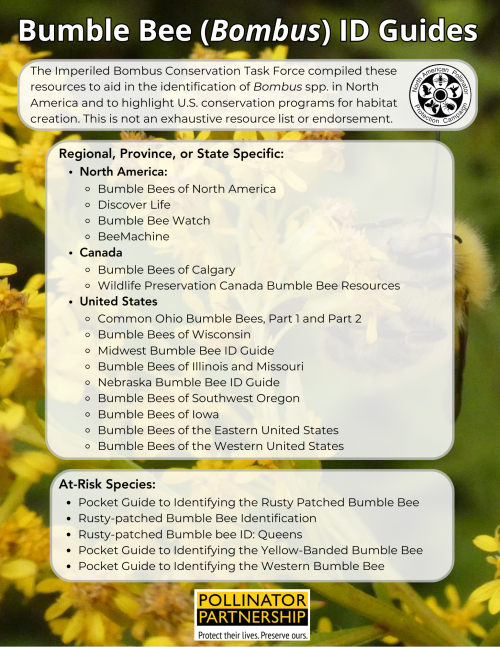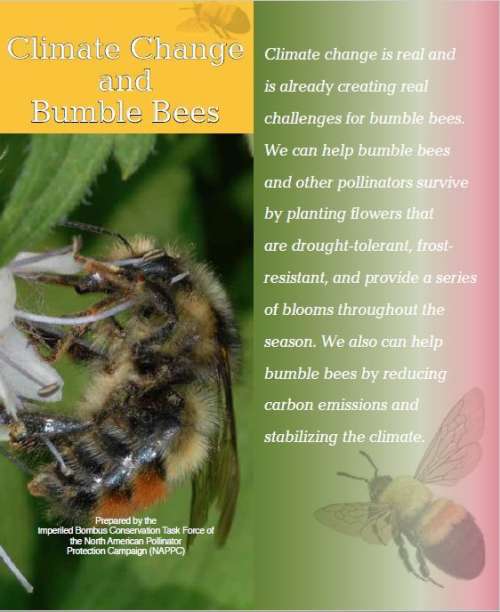Imperiled Bombus Conservation Task Force
The decline of bumble bees can have significant ecological and economic consequences. Although, it is difficult to pinpoint the causes of the declines and there are many unanswered questions about basic biology and ecology of these species, there are actions that can help conserve these species. This group will explore the role of NAPPC in making positive contributions to Bombus conservation and how best to augment and boost ongoing recovery actions.
Our Mission
We work to identify and address key stressors to imperiled bumble bee heath, determine critical bumble bee research needs, and promote scientifically sound conservation of bumble bees. This is accomplished through a bumble bee conservation grant program, development and dissemination of resources, and other focused projects (e.g., clean stock recommendations).
Call for Research Proposals Related to Imperiled Bombus Conservation
The 2026 grant application window is now closed.
Download the English RFPDownload the Spanish RFP
Photo by Anthony Colangelo

Current Grantees
Georgia Murray with the Appalachian Mountain Club will be investigating alpine habitat for threatened bumblebees through the project "Mountain Pollinator Monitoring: Northeast Alpine Areas as Climate Change Refugia"
Dr. Nina Sokolov at the University of California, Berkeley will be discerning the effects of bumblebee pathogens through the project "Quantifying the pathogen community of Bombus occidentalis"
2024 Grantees
Lizzy Sakulich at The Ohio State University will be "Investigating the impacts of flower patch dynamics on the detectability of rare bumble bee species"
Austin C. Calhoun at Illinois State University will be analyzing "Non-destructive detection and the effects of viral spillover on beneficial gut microbiota and host health"
Jessica L. Mullins and Diego Esperanza de Pedro at University of California San Diego and the Arthopod Museum of Baja California will be "Unraveling the impact of climate and land-use change on imperiled bumble bees to identify conservation areas in a bi-national biodiversity hotspot"
2023 Grantees
Dr. Claudio Gratton at the University of Wisconsin-Madison will be trying to answer the question “Does management of woodlands with fire have negative effects on nesting bumble bees?”
Morgan Moore at Iowa State will be “Developing health biomarkers for bumble bees to inform conservation of imperiled bombus species”
Dr. Daniel Cariveau at the University of Minnesota will be “Monitoring wild bumble bee nest growth and survival”
NAPPC White Papers
Developing a Commercial Bumble Bee Clean Stock Certification Program: A white paper of the North American Pollinator Protection Campaign Bombus Task Force
Download White PaperImportation of Non-Native Bumble Bees into North America: Potential Consequences of Using Bombus terrestris and Other Non-Native Bumble Bees for Greenhouse Crop Pollination in Canada, Mexico, and the United States.
Download White PaperBumble Bee ID Guide
This Bumble Bee ID Guide provides resources that aid in the identification of Bombus spp. in North America and to highlight U.S. conservation programs for habitat creation. This is not an exhaustive resource list or endorsement.
Climate Change and Bumble Bees
Climate change is real and is already creating real challenges for bumble bees. We can help bumble bees and other pollinators survive by planting flowers that are drought-tolerant, frost resistant, and provide a series of blooms throughout the season. We also can help bumble bees by reducing carbon emissions and stabilizing the climate.
Download Brochure

